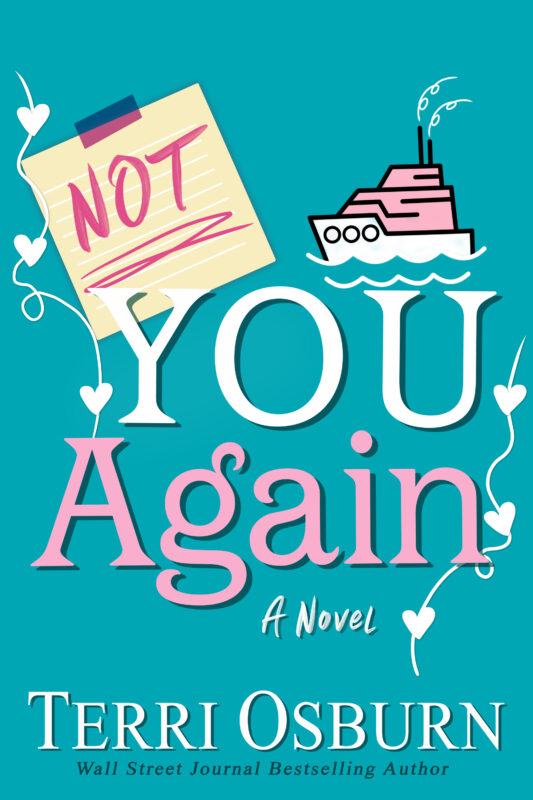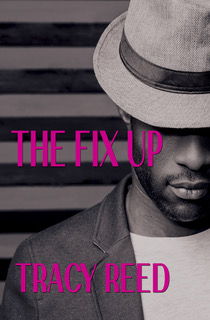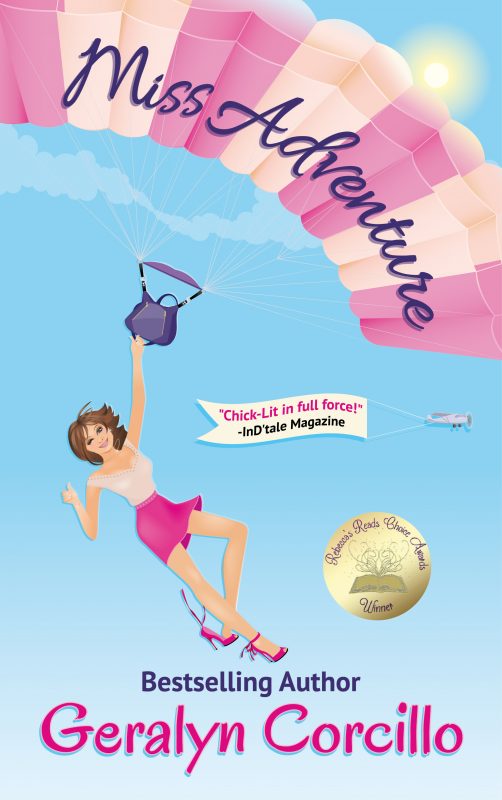
As a young reporter, I used to whine that my editors “dumbed down†my writing when they traded big words for simple ones, broke up long sentences or otherwise made my writing clearer.
I’ve learned an important lesson since then.
Clarity is never dumb.
Clogged, jargon-filled writing is one of the biggest mistakes I find in professional communications today. The point of all writing is to convey a message. Yet the writing that comes out of businesses, schools and other institutions too often lacks a point, the messages weighed down under awkward phrases.
Take a look at the following sentence: The university seeks an increase in funds for the acquisition of periodicals in the library.
Now look at it this way: The university library needs more money to buy books.
Which one is better?
If you picked the first sentence, I’m not surprised. You have been trained to think that big words and long sentences sound professional.
In college, professors gave you minimum word and page requirements for your assignments, convincing you that good writing is long writing. That lesson is reinforced on the job, where you face reports and presentations full of acronyms, clauses and paragraphs that never end.
Hear me on this: Long writing does not make you sound smart. Nor does it make you sound professional.
It makes you sound scared.
Jargon and “bureaucratese†force readers to focus on your words, not your message. And when your message is cloudy, you fail as a writer.
Are you guilty of the heavy writing I’ve just described? No fear. Whether you realize it or not, you already know that simple is better.
Think back to those college days. When studying, did you highlight passages in your text books? You likely do the same thing today when you’re reading annual reports or memos from co-workers. That’s your mind telling you that not every single word you’re reading is crucial.
So, why waste time with words and sentences that aren’t necessary? It is better to make sure that every word you write is clear, precise and essential to your message.
Here are some tips to clarify your writing:
What’s the message?
Before you start writing, ask yourself a few questions. Who cares about this topic? Why should they care? What is the impact of this issue? What do you want people to do/think/feel after they read your words?
Questions like these will focus your writing on the most important points, which always adds clarity. They will also define your message and help you choose the perfect words.
Write like you talk.
You run into a colleague at the water cooler. She asks what’s new, and you say, “Due to a lack of funding, my plan to acquire an enhanced transportation method will have to be put on hold.â€
Translation: I don’t have enough money for a new car right now.
For some reason, people think that when they put a message in writing, they have to dress it up and bog it down. They’re wrong. Writing should sound like you. This is how you establish your voice – your unique view of an issue translated into the written word. It’s OK to have a voice, even in professional settings.
The key to writing like you talk is to actually talk while writing. Before you put fingers to keyboard, pretend you’re explaining the issue to your mother. Write it that way.
And, yes, the level of formality in your writing should reflect the audience. I would expect you to speak differently to the President of the United States than your mom. But don’t confuse formality with stiffness. You must still be clear, and your writing should still sound like you.
Presume ignorance.
Assume that your audience has little or no idea what you’re talking about; that your memo or report will be the first time they’ve ever heard of your topic. This is true even if you know that your audience are your colleagues, who are as well-versed and as well-educated as you are on your subject.
When writing, pretend you’re trying to explain this to a group of middle-schoolers. This ensures that you keep it simple, stick to the basics, and avoid the pitfalls of jargon. Define acronyms. Cite studies. Explain procedures and use short words.
I know, I know. The inner Ph.D in you is gasping in pain. How can she possibly show off all those years of college if she can’t use the jargon of her field? Tell her to shut it. She’ll be fine once she realizes that her message makes her sound smart; not her words.
Speaking of words… Shorter is better.
Look again at the two sentences above. We replaced “acquisition of periodicals†with “buy books.†We cut ten syllables to two.
You might argue that “periodicals†does not exactly mean “books.†You’re right. The point is that you can always find a simpler way to say things. As an added bonus, finding the simple way forces you to be as specific as possible. That’s always a good thing.
Get rid of jargon.
I’ve said a lot about the evils of jargon, which should have been a clue that it would eventually get its own section. Nothing grates my nerves as much as jargon. Amateur communicators think that jargon and overly technical writing makes them sound like an expert. Look how much I know about this! I can spew all these fancy words!
I argue the opposite. Jargon is a camoflauge for a lack of confidence in the message. How do you know if something is jargon? Ask yourself this: Does a reader need a degree in the subject matter to recognize the phrase? Could a reader with no background in this issue understand the word? If the answer is no, find another way to say it. (Again, think about how you would explain it to your mother.)
People especially rely on jargon when delivering bad news, as if the message is easier to take when couched under “tech speak.†Bad news is bad no matter how you say it. Readers (a broad term for your customers, co-workers, superiors, etc.) will know when you’re trying to pull one over on them, and they won’t appreciate it. Sales are down? Then just say it.
Take a cue from Winston Churchill. The news from France is bad.
Cut.
Mark Twain once mused, “I didn’t have time to write a short letter, so I wrote a long one.â€
Professional writers know what he means. The hardest part of writing is rewriting, and the hardest part of rewriting is cutting. You spend all that time putting the words down, and then you’re supposed to erase a third of them?
Yep. Writing is cruel.
But if you take it in steps, cutting doesn’t have to be so painful.
Start by looking for redundancies. Do you refer to an “advance plan� Just say “plan.†It means the same thing. How about “unexpected surprise� Aren’t all surprises unexpected? You’ll be amazed how many of these redundant phrases crop up in your work and weaken your message.
Next, condense or break up sentences. Read your work aloud. If you can’t finish a sentence without taking a breath, it’s too long. Either break it up into two sentences or shorten it. With paragraphs, a good rule of thumb is to not exceed a few sentences.
Finally, change passive to active voice. Not sure of the difference? Let’s look at some sentences again.
Passive: The man was bitten by the dog.
Active: The dog bit the man.
The first sentence is passive; the subject of the sentence (the man) is acted upon. An active sentence is one in which the subject acts upon something else. Turning your passive sentences into active ones will immediately make your writing sharper, warmer and more authoritative.
You can spot passive voice by the word “was†and by the use of “ing†words. She was dancing becomes She danced.
The proposal was approved by the city council becomes The city council approved the proposal.
Proofread beyond the spellchecker.
Township to hold forum on pubic safety.
If you caught the mistake in that sentence, I’m impressed. If you didn’t catch it, read it again. See it now? Didn’t know your local government was so concerned with your pelvic health, did you?
Too bad that real-life headline from my first newspaper job was supposed to say “public safety.â€
Few things can kill your message as quickly as typos. Don’t rely solely on the spellchecker to proofread your work. Print it out. Edit it. Then edit again.
Is that clear?
Good.
© 2004 Louise Knott Ahern
OCC member Louise Knott Ahern is a freelance journalist and public relations coach who writes contemporary romances. She’s the author of “Opting Out: A Career Woman’s Guide to Going Home Without Going Crazy,†a blog for mothers at http://www.optoutguide.blogspot.com/. She is also a contributor to The Writer’s Vibe (http://thewritersvibe.typepad.com/the_writers_vibe/), a blog for professional writers.
- Author Details
- Books on Sale
- New Releases
- Contact Us
- Be in the Spotlight
Books on sale or free

Related
Affiliate Links
A Slice of Orange is an affiliate with some of the booksellers listed on this website, including Barnes & Nobel, Books A Million, iBooks, Kobo, and Smashwords. This means A Slice of Orange may earn a small advertising fee from sales made through the links used on this website. There are reminders of these affiliate links on the pages for individual books.
Search A Slice of Orange
Find a Column
Archives
Featured Books
NOT YOU AGAIN
Four blind dates in five days. I can’t believe I agreed to this.
More info →PIVOT
Three friends, each survivors of a brutal childhood, grew up together in foster care. Now as women, they’re fighting for their lives again.
More info →MISS ADVENTURE
Can a daydreaming city girl find her backbone by going on daring adventures with an adrenaline junkie?
More info →Newsletter
Contributing Authors
Search A Slice of Orange
Find a Column
Archives
Authors in the Bookstore
- A. E. Decker
- A. J. Scudiere
- A.J. Sidransky
- Abby Collette
- Alanna Lucus
- Albert Marrin
- Alice Duncan
- Alina K. Field
- Alison Green Myers
- Andi Lawrencovna
- Andrew C Raiford
- Angela Pryce
- Aviva Vaughn
- Barbara Ankrum
- Bethlehem Writers Group, LLC
- Carol L. Wright
- Celeste Barclay
- Christina Alexandra
- Christopher D. Ochs
- Claire Davon
- Claire Naden
- Courtnee Turner Hoyle
- Courtney Annicchiarico
- D. Lieber
- Daniel V. Meier Jr.
- Debra Dixon
- Debra H. Goldstein
- Debra Holland
- Dee Ann Palmer
- Denise M. Colby
- Diane Benefiel
- Diane Sismour
- Dianna Sinovic
- DT Krippene
- E.B. Dawson
- Emilie Dallaire
- Emily Brightwell
- Emily PW Murphy
- Fae Rowen
- Faith L. Justice
- Frances Amati
- Geralyn Corcillo
- Glynnis Campbell
- Greg Jolley
- H. O. Charles
- Jaclyn Roché
- Jacqueline Diamond
- Janet Lynn and Will Zeilinger
- Jaya Mehta
- Jeannine Atkins
- Jeff Baird
- Jenna Barwin
- Jenne Kern
- Jennifer D. Bokal
- Jennifer Lyon
- Jerome W. McFadden
- Jill Piscitello
- Jina Bacarr
- Jo A. Hiestand
- Jodi Bogert
- Jolina Petersheim
- Jonathan Maberry
- Joy Allyson
- Judy Duarte
- Justin Murphy
- Justine Davis
- Kat Martin
- Kidd Wadsworth
- Kitty Bucholtz
- Kristy Tate
- Larry Deibert
- Larry Hamilton
- Laura Drake
- Laurie Stevens
- Leslie Knowles
- Li-Ying Lundquist
- Linda Carroll-Bradd
- Linda Lappin
- Linda McLaughlin
- Linda O. Johnston
- Lisa Preston
- Lolo Paige
- Loran Holt
- Lynette M. Burrows
- Lyssa Kay Adams
- Madeline Ash
- Margarita Engle
- Marguerite Quantaine
- Marianne H. Donley
- Mary Castillo
- Maureen Klovers
- Megan Haskell
- Melanie Waterbury
- Melisa Rivero
- Melissa Chambers
- Melodie Winawer
- Meriam Wilhelm
- Mikel J. Wilson
- Mindy Neff
- Monica McCabe
- Nancy Brashear
- Neetu Malik
- Nikki Prince
- Once Upon Anthologies
- Paula Gail Benson
- Penny Reid
- Peter Barbour
- Priscilla Oliveras
- R. H. Kohno
- Rachel Hailey
- Ralph Hieb
- Ramcy Diek
- Ransom Stephens
- Rebecca Forster
- Renae Wrich
- Roxy Matthews
- Ryder Hunte Clancy
- Sally Paradysz
- Sheila Colón-Bagley
- Simone de Muñoz
- Sophie Barnes
- Susan Kaye Quinn
- Susan Lynn Meyer
- Susan Squires
- T. D. Fox
- Tara C. Allred
- Tara Lain
- Tari Lynn Jewett
- Terri Osburn
- Tracy Reed
- Vera Jane Cook
- Vicki Crum
- Writing Something Romantic
Affiliate Links
A Slice of Orange is an affiliate with some of the booksellers listed on this website, including Barnes & Nobel, Books A Million, iBooks, Kobo, and Smashwords. This means A Slice of Orange may earn a small advertising fee from sales made through the links used on this website. There are reminders of these affiliate links on the pages for individual books.
































































































































Louise–
I saved this article as a much needed reminder that I don’t need to use–and misuse!–big words to get my point across!
Thank you, Sandy Novy-Chvostal
Louise,
This is about the 100th time I’ve tried to leave a comment. Hope this one works.
I loved this article.
Marianne